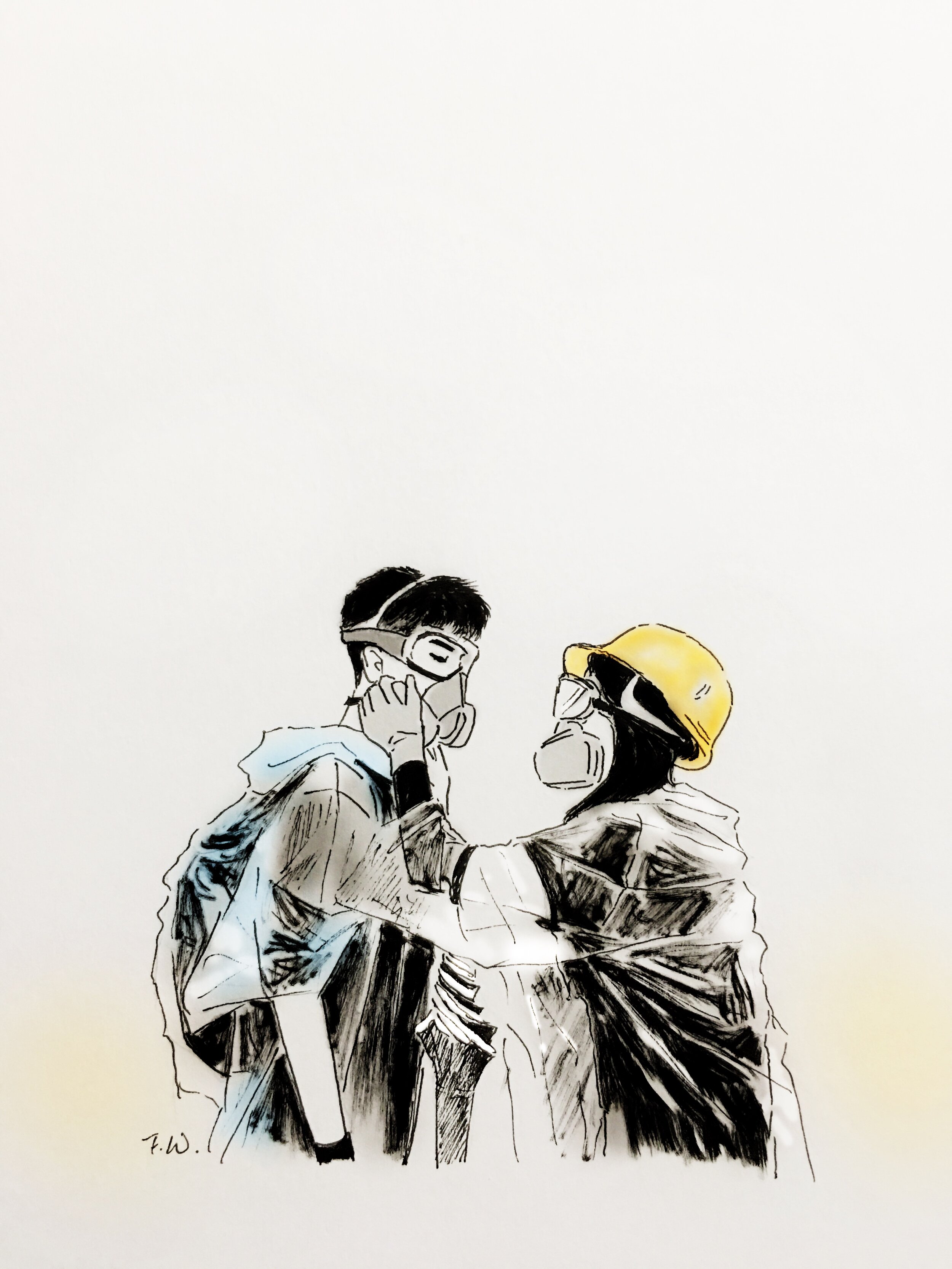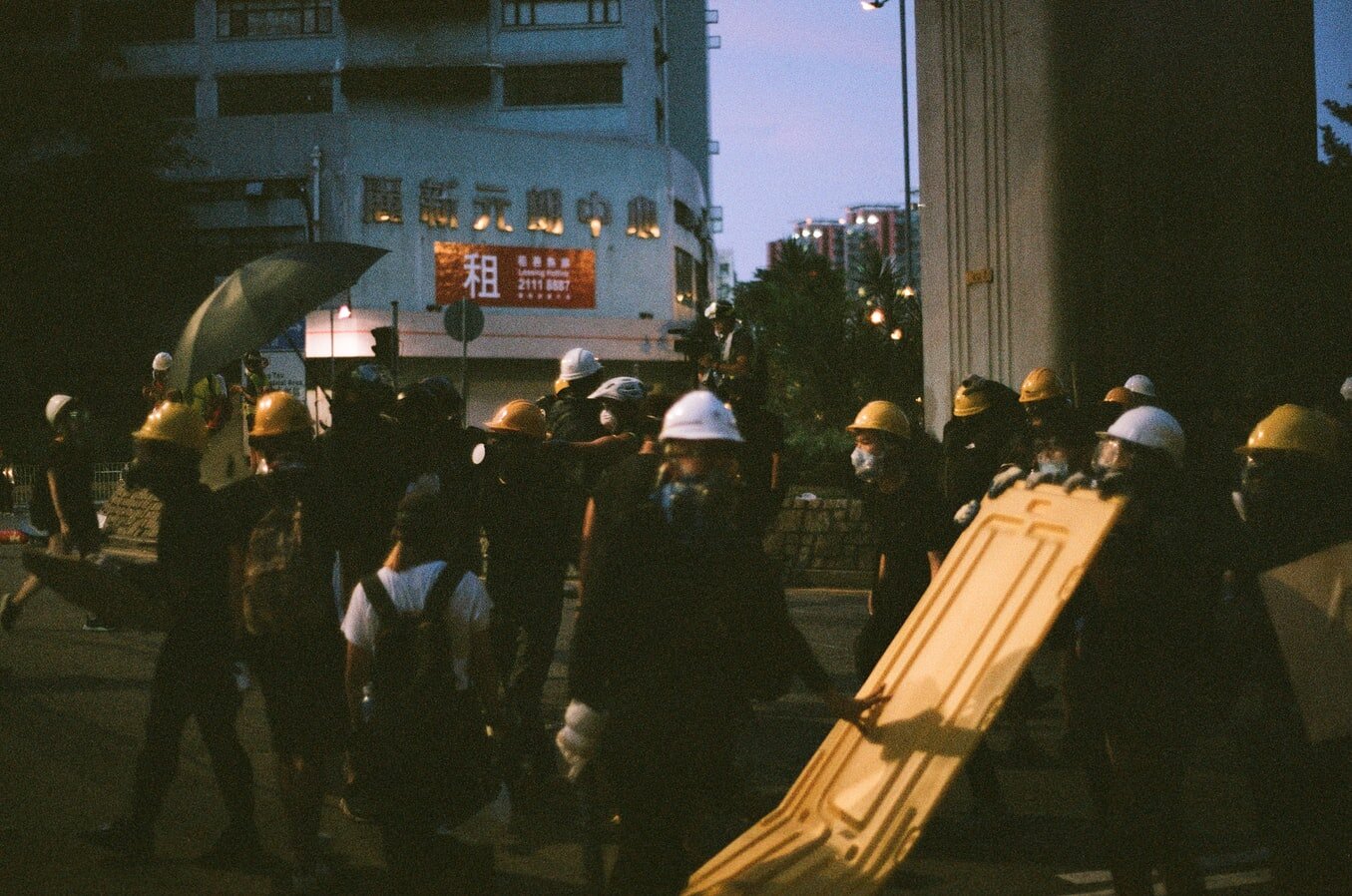Hong Kong: the last piece of free land on the draconian empire
V* and Ariadna Arbolí
*One of the authors of the piece has asked to remain anonymous to protect their identity.
On June 30, 2020, the National People’s Congress of the People’s Republic of China (PRC) passed the Hong Kong National Security Law, the culmination of a long year of protests in which Hong Kongers’ demands to preserve their rights and liberties were met with heavy state-sponsored violence and repression. Three months later, resignation is palpable in the air as Hong Kong rarely appears on the top news headlines anymore; the law has passed, activists have fled, and no one can stop the Chinese government from doing whatever it desires. The imperfect structure of the international system ensures that the control of world affairs remains in the hands of a very few, continues to put state sovereignty at the forefront, and extremely compromises global cooperation against injustices.
On the very last day of a free Hong Kong, shops erased their pro-democracy banners and young politicians announced their resignation from political parties. When the clock chimed eleven on June 30, the Asian financial hub as we know it no longer existed.
Art: © Miss @mmeflm
An atrocity this devastating was not done overnight. Most of the territory that makes up Hong Kong was ceded in perpetuity to Britain in 1842 and 1860, with the signing of both the Treaty of Nanking and the Convention of Peking. It was only with the Second Convention of Peking (1898) that the New Territories were leased for 99 years by the Manchu Qing Dynasty to Great Britain. There was no treaty between Britain and the Chinese Communist Party, founded in 1949, for Hong Kong.
Yet the path was set when the PRC was recognised as “the only legitimate representative of China to the United Nations” in Resolution 2758 of the General Assembly in 1971, and it began denouncing the unequal nature of the treaties over Hong Kong in the midst of the global effort for decolonisation. Great Britain agreed to hand over Hong Kong under the ‘one country, two systems’ principle. It hoped that the West’s influx of money and resources to the PRC would lead to democracy through the influence of Hong Kong while the “return” would be an invaluable opportunity to open up a market of 1.3 billion people.
uprising is only a matter of time before the people lose patience and faith in the Government that was never supported or voted upon by them.
Exactly 23 years before the introduction of the National Security Law, on July 1, 1997, Great Britain decided the fate of Hong Kong. Without any consultation with the people of Hong Kong, the island was “returned” to the country that never admitted the June Fourth Massacre of Tiananmen Square or any of the exploitation or indoctrination it has done to its people. The lack of say among the people has buried the seed for future uprisings. In the Basic Law agreed upon by Great Britain and the Chinese Communist Party, there was an arrangement on the process to universal suffrage by 2008, which never happened. The people of Hong Kong were out of the picture even in the drafting of Basic Law, the constitution that governs their society. It is thus reasonable to conclude that uprising is only a matter of time before the people lose patience and faith in the Government that was never supported or voted upon by them.
Now the world should be aware of the stark consequences this faulty investment has brought. The passing of the National Security Law is a symbol and a warning — perhaps the very last warning — that a draconian country would never be appeased by silence of the international community. Hong Kong is not the only victim. Millions of Uyghurs are being incarcerated in Re-education camps in Western China. Indeed, many may think that any other imperial nation is selfish and dominant just like the Chinese Communist Party, but that does not justify the total exploitation of human rights of millions of people, and most certainly does not justify the silence of others.
Photograph: Leung Yattin
How could we let this happen? The international reaction to the National Security Law perfectly illustrates the ineffectiveness of the current international system when it comes to the safeguarding of human rights, as China’s position as a permanent member of the United Nations Security Council means that any severe sanctions are off the table. While many countries have expressed disapproval of China’s actions, so far only Taiwan, the UK, and Australia have responded in a meaningful way by facilitating the immigration and settlement of Hong Kongers — risking retaliation from China. By letting the situation escalate to the present point, the international system has failed Hong Kong.
While the British government considers granting Hong Kongers leave to remain, it is now mainly applicable to those born before the handover in 1997 holding British National (Overseas) passports. This passport (BNO in short) is issued by the British Government specifically for the people of Hong Kong in face of a high number of applicants for British Citizenship before Hong Kong went under the Chinese Communist Party’s rule. However, it is the generation born after 1997 that mainly fought in the revolution. The people who suffered most and stood up are mostly the young, the educated, the brave and most importantly, the ones that an equality-advocating country should welcome. In an online survey conducted by Foreign Policy to Hong Kong citizens, about 50% said they are considering emigrating. If the sample surveyed is an accurate representation of the population of Hong Kong, this means that over three and a half million people could be fleeing their home and seeking refuge in the near future. The way in which governments around the world respond to this crisis is going to be a great test of their commitment to upholding democracy and human rights.
Photograph: Manson Yim
The general indifference towards Hong Kong symbolises something deeper: the decay of democracy. We are complacently witnessing an authoritarian power taking over a society that was, until now, relatively free. We cannot remain silent and hope for the best. “Unless we burst, we shall perish in silence”, the famous Chinese writer Lu Xun once wrote. The people of Hong Kong are the living proof that this slow yielding will only result in a total usurp of freedom and equality. The National Security Law has passed and anyone, even people residing outside of Chinese territory, can be found guilty of a law the Chinese Communist Party ruthlessly proposed.
There needs to be stronger international mechanisms of accountability for human rights issues that go beyond mere symbolic acts, and such a thing can only be achieved by joining forces; there has been major grassroots mobilisation calling for people around the world to sign petitions and pressure their governments to stand with Hong Kong. As small as it may seem, we must not underestimate the impact of collective action.
It is only by coming together and realising how we can learn from each other that we will be able to protect our rights. In a globalised world, where any event can trigger major worldwide consequences, we need to think about struggles as global. In June, when the Black Lives Matter protests broke out across the United States, Hong Kongers began sharing their protest techniques online with Americans. This is a perfect example of what transnational solidarity looks like, a concept that Angela Davis analyses in her book Freedom is a Constant Struggle as she reflects on the interconnectedness of social movements around the world and their common roots on systemic oppression.
As the world buries its soil in Hong Kong, please stand up, and do not let any other countries fall prey to authoritarianism. Hong Kongers have the power to constantly remind us how much impact a single person from a small island can have, for not even tanks can destroy our ideas.
The art accompanying this piece is courtesy of © Miss @mmeflm.



